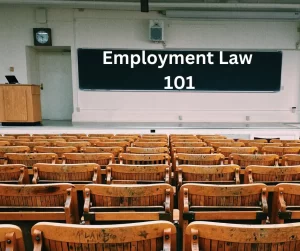
Under Washington State laws, what is the meaning of the term “plaintiff“? Here’s my point of view.
(IMPORTANT: This article is for informational purposes only and is based upon my point of view. Due to the rapidly changing nature of the law, we make no warranty or guarantee concerning the accuracy or reliability of the content in this article. No content on this site, regardless of date, should ever be used as a substitute for direct legal advice from your attorney. Please review our Disclaimer | Terms of Use | Privacy Policy before proceeding.)
Definition of Plaintiff
Under Washington State law, the term “plaintiff” holds a pivotal role. A plaintiff is a fundamental figure in the legal landscape, serving as the catalyst for the pursuit of justice and the resolution of disputes.
A plaintiff, in the context of Washington jurisprudence, is an individual or entity who initiates a legal action by filing a complaint in a court of law. This party is often described as the “aggrieved party” or the party that claims to have suffered some harm, injury, or loss due to the actions or negligence of another individual, entity, or even the government. The plaintiff seeks legal redress, typically in the form of damages, injunctions, or specific remedies.
This article delves into the concept of the plaintiff within the context of Washington State law, elucidating their roles and responsibilities in the state’s unique legal landscape.
Roles and Responsibilities of a Plaintiff
Initiating Legal Actions:
The plaintiff plays a critical role in commencing legal proceedings. They are responsible for drafting and filing a complaint, which outlines the specific facts, legal claims, and remedies sought in the case. This complaint serves as the foundation upon which the entire legal process is built.
Proving the Case:
Once the complaint is filed, the plaintiff has the responsibility to prove their case. This involves gathering evidence, presenting witnesses, and making legal arguments to establish that the defendant is liable for the harm or violation alleged in the complaint.
Legal Standing:
To file a lawsuit, a plaintiff in Washington State must have legal standing, meaning they must demonstrate a direct, personal interest in the case. This ensures that only those who are genuinely affected by the issue at hand can bring it before the court.
Engaging Legal Representation:
Plaintiffs often seek legal counsel to help navigate the complexities of the legal system. Attorneys, also known as lawyers, provide valuable expertise in formulating legal strategies, collecting evidence, and representing the plaintiff’s interests in court.
Negotiation and Settlement:
In many cases, plaintiffs, through their attorneys, engage in negotiations with the defendant to reach a settlement before proceeding to trial. Settlements can be an efficient way to resolve disputes without the time and cost of a full trial.
Participation in Court Proceedings:
Plaintiffs are actively involved in court proceedings. They may need to testify as witnesses, provide depositions, and be present during hearings and trial proceedings. Their active participation is crucial in presenting their case effectively.
Seeking Remedies:
Plaintiffs in Washington State typically seek remedies such as monetary compensation, injunctive relief (a court order to stop or prevent certain actions), or specific performance (requiring a party to fulfill contractual obligations). The type of remedy sought depends on the nature of the case.
Conclusion
The role of the plaintiff in Washington State jurisprudence is fundamental to the state’s legal system. Plaintiffs are responsible for initiating legal actions, substantiating their claims, and seeking remedies for alleged injuries and legal infractions. Their role embodies the spirit of justice in Washington State, providing individuals and entities with the means to seek redress and resolution through the state’s legal institutions. An understanding of the plaintiff’s responsibilities is paramount for comprehending the nuances of the legal process in Washington State and ensuring access to justice in this jurisdiction.
Read Our Related Articles
We invite you to read more of our articles related to this topic:
» Employment Law 101: Alternative Dispute Resolution
» Employment Law 101: Definition of Pleading
» Employment Law 101: Depositions
» Employment Law 101: Discovery (WA State)
» Employment Law 101: Legal Theory
» Employment Law 101: Mediation
» Employment Law 101: Remedies
» Employment Law 101: Statute of Limitations
» Employment Law 101: Summary Judgment (WA State)
» Employment Law 101: The Complaint
» Employment Law 101: The Defendant
» Employment Law 101: The Summons
LEARN MORE
If you would like to learn more, then consider contacting an experienced attorney to discuss your case. This article is not offered as legal advice and will not establish an attorney-client relationship with Law Office of Gregory A. Williams or the author of this article; please refer to our Disclaimer | Terms of Use | Privacy Policy for more information.
–gw

